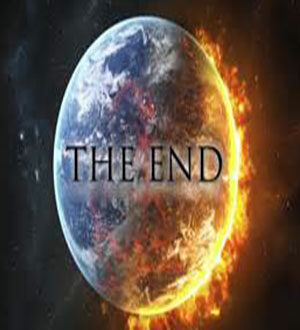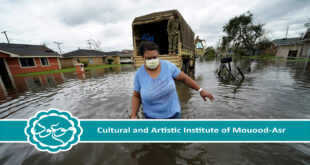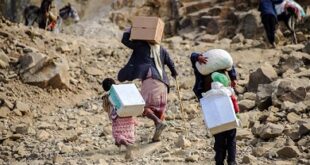Nature Bats Last
The phrase “nature bats last” circulates these days among people who have their eye on the multiple, cascading ecological crises. The metaphor reminds us that nature is the home team and has the final word. We humans may be particularly impressed with our own achievements — all of the spectacular homeruns we have hit with science and technology — but when those achievements are at odds with how nature operates, then nature is going to bring in the ultimate designated hitter and knock the human race out of the ballpark. OK, let’s not try to stretch this too far — no single metaphor can work at every level needed. The point is simple: We are not as powerful as the forces that govern that larger living world.
The metaphor offers one other crucial lesson, in this case because of its limitations. When we say “nature bats last,” it implies we are one team and nature is on another, as if it were possible for us to compete with nature. But we are, of course, simply part of nature, one species in an indescribably diverse living world. To imagine ourselves as competing with nature would be like our lungs competing with our heart — either those organs work together, or an individual human dies.
Unfortunately, the architects of modern science didn’t see the world that way. One of the most often-quoted, Francis Bacon, believed that modern science and technology “have the power to conquer and subdue [nature], to shake her to her foundations.” Rene Descartes, another of these founding fathers, believed humans could achieve the knowledge and develop the means to know:
The force and action of fire, water, air, the stars, the heavens, and all the other bodies that surround us, as distinctly as we know the various crafts of our artisans, we might also apply them in the same way to all the uses to which they are adapted, and thus render ourselves the lords and possessors of nature.
These thinkers also contributed to our understanding of the workings and power of the natural world. But this language of domination — to conquer and subdue, becoming lords and possessors — is the language not of a baseball game but of war, which brings us to the relevance of this to Veterans for Peace. VFP members have seen through and gone beyond the egotistical rhetoric of our national fundamentalism — with all its fraudulent claims about “fighting for freedom” — to reject the US wars of empire and stake out an audacious goal: “To abolish war as an instrument of national policy.”
We also need to see beyond the egotistical rhetoric of our technological fundamentalism — the claims that infinitely clever humans will solve all problems with gadgets — and stake out an even more audacious goal: To end the human war on the rest of living world.
Life is Hard
If all this seems too much to ask of ourselves, that’s because it is. We live in a time when we must face honestly the whole truth, but to do that is too much to bear. We struggle to claim our power at the moment when we are more powerless than ever, and find hope where there is no hope.
On power: Those of us in dissident movements understand we face difficult odds, fighting entrenched forces of the state and corporation. We know the keys to prevailing: Fight organized money with organized people; compromise to build a power base but never abandon core principles; find ways to delegitimize authority; raise the social costs for elites to pursue unjust policies; hang in for the long haul. Those organizing basics don’t change, though the application of them must constantly adapt to changes in the structure of power. But the ecological crises change things the big picture.
First, we should not assume the long haul is as long as we’ve always imagined. No one can predict the rate of collapse if we stay on this trajectory, and we don’t know if we can change the trajectory. There is much we don’t know, but everything I see suggests that the world in which we will pursue political goals will change dramatically in the next decade or two, almost certainly for the worse. Organizing has to adapt not only to changes in societies but to these fundamental changes in the ecosphere. We are organizing in a period of contraction, not expansion.
Second, we can’t be satisfied with contesting imperialism in the nation-state and the concentration of wealth in corporate capitalism, but also must change the human relationship to the living world. Dissident movements have an advantage, given that a larger percentage of people involved in left/radical politics have less of a commitment to maintaining the dominant culture’s delusions. Radicals don’t have the wealth and power that can appear to insulate us from collapse, which means we have more room to think about what living arrangements are consistent with reality. Elites, who typically mistake temporary domination for real power, have a harder time recognizing that humans are powerless in the face of the forces we have been trying to conquer and subdue. In the end, we can never be the lords and possessors of something larger and more enduring in time. Many traditions recognize this basic reality: We don’t own the earth, the earth owns us. Our power comes in recognizing our powerlessness and adapting to the world as it is, not the world as we imagine it to be.
How does this approach give people hope? It doesn’t, and it shouldn’t, because hope is not something you give to people. The political organizers on the liberal/left who are always touting a new way to restore the American Dream are peddlers of false hope, offering allegedly exciting opportunities to an allegedly new movements that are stuck in the same old failed ideology of the dominant culture, steadfastly ignoring the depth and scope of the ecological crises. Real hope comes with abandoning the false prophets and moving on to accomplish something. Authentic hope comes when we honestly confront our condition and dig in to create new, or revive old, forms of community. Hope comes from proving to ourselves that we are competent to manage our own lives. Hope doesn’t fall from the sky but rather is built from the ground up.
That hope doesn’t ask for guarantees that our movements will prevail. That hope doesn’t require us to pretend we know whether the human experiment will go on forever. That hope comes from the understanding that while we did not choose to live in a desecrated world, such is the world into which we were born. All we can do is act out of respect for ourselves, for each other, and for nature, in the hope that we can restore the sacredness of the individual, the human community in which individuals find meaning, and the living world of which human communities are a part.
Organizers have long said that the key to successful organizing is making it easy for people to do the right thing. Today, our task is to be honest about how difficult it is to do the right thing. Anyone who thinks it can be easy to do the right thing is part of the delusional culture. Rather than delude ourselves, let’s face the truth and recognize the difficulty of the path that lies ahead. Other social movements have prevailed in the face of great difficulty, but no social movement has had to face this simple but profound reality: We have to become the first species on the planet to practice restraint in the scramble for energy-rich carbon. All life on this planet is based on that scramble, but if we continue on the path unchecked the planet will be incapable of sustaining human life as we know it. That is a brand new organizing challenge. In facing it, we need to leave the platitudes at home.
The radical political theology I believe we need for this moment in history would acknowledge, rather than try to mask, our confusion and uncertainty. We know we are in deep trouble; beyond that, it’s guesswork. Facing that takes a new kind of courage. We usually think of courage as rooted in clarity and certainty — we act with courage when we are sure of what we know. Today, the courage we need must be rooted in the limits of what we can know and trust in something beyond human knowledge. In many times and places, that something has gone by the name “God.”
Religious fundamentalism offers a God who will protect us if we follow orders. Technological fundamentalism gives us the illusion that we are God and can arrange the world as we like it. A radical political theology leaves behind fear-based protection rackets and arrogance-driven control fantasies.
The God for our journey is neither above us nor inside us but around us, a reminder of the sacredness of the living world of which we are a part. That God shares the anxiety and anguish of life in a desecrated world. With such a God we can be at peace with our powerlessness and alive in hope. With such a God, we can live in peace.
References
[1] Wes Jackson, “New Roots for Agriculture” (Lincoln: University of Nebraska Press, 1980), chapter 2. Many of my points in this talk were greatly influence by the work of Jackson and The Land Institute, http://www.landinstitute.org/
[2] Tim Kasser, “The High Price of Materialism” (Cambridge, MA: MIT Press, 2002)
[3] Naomi Oreskes and Erik M. Conway, “Merchants of Doubt: How a Handful of Scientists Obscured the Truth on Issues from Tobacco Smoke to Global Warming” (New York: Bloomsbury Press, 2010).
[4] Greg Brown, “Where Is Maria?” from the CD “Further In,” Red House Records, 1996.
[5] Bill McKibben, “Eaarth: Making Life on a Tough New Planet” (New York: Times Books/Henry Holt, 2010), p. 2.
[6] McKibben, “Eaarth” , p. 25.
[7] McKibben, “Eaarth” , p. 123.

 Mouood Mouood English Edition
Mouood Mouood English Edition



